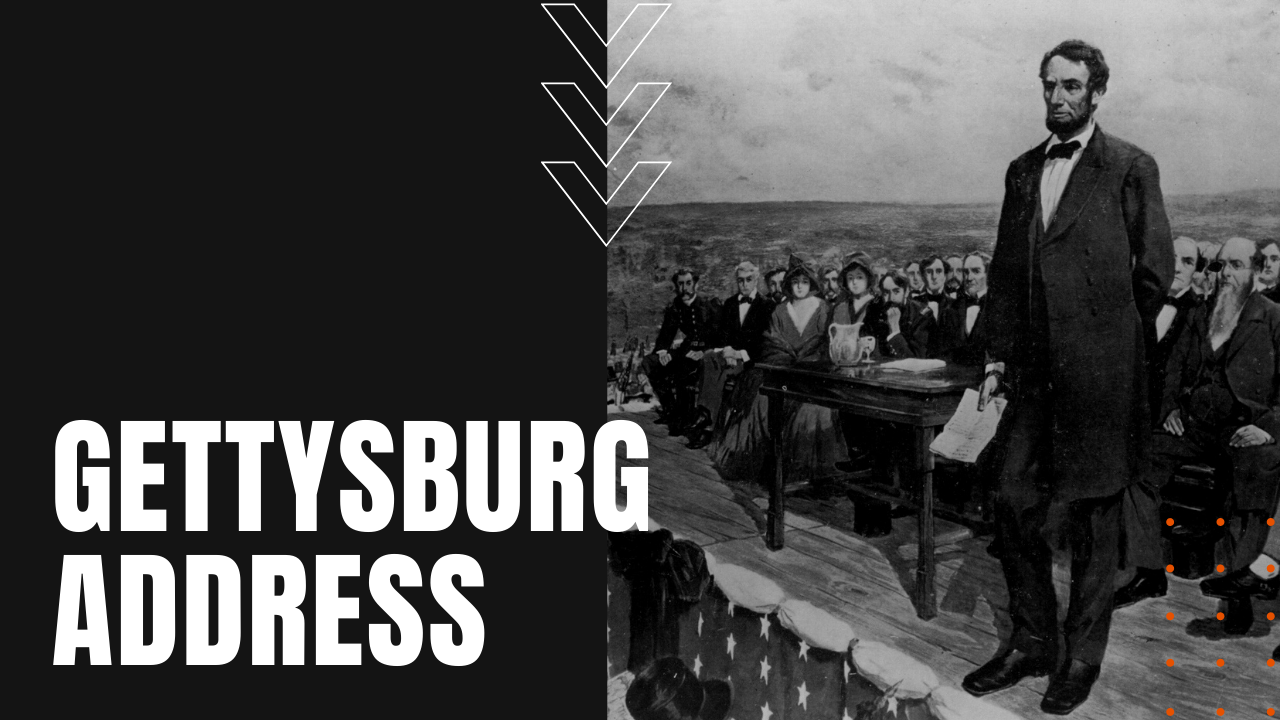Gettysburg Address: Lincoln Delivers Two-Minutes of American History

On July 4th, 1863, Confederate General Robert E. Lee retreated into Virginia after the Battle of Gettysburg saw more than 37 percent of his 75,000-man army killed, missing or injured.
A month later, Lee would hand his resignation to Confederate President Jefferson Davis, who promptly refused to accept the general’s defeated stand down, and while President Abraham Lincoln expressed his frustration that Union General George Meade failed to pursue Lee’s forces in retreat, he accepted an invitation to speak at the dedication of a National Cemetery at Gettysburg.
Abraham Lincoln’s Gettysburg Address
On the morning of November 19th, after former secretary of state, U.S. Senator and Harvard College President Edward Everett delivered a two-hour dedication address, Lincoln took to the podium to deliver a two-minute speech that would later become known as the Gettysburg Address.
Before a gathered crowd of some 15,000 people, in less than 275 words, Lincoln expressed his conviction that the Civil War was the greatest test to the survival of the United States as created by the Declaration of Independence, noting quite eloquently that the Union dead who laid down their lives at Gettysburg had done so to ensure that “government of the people, by the people, for the people, shall not perish from the earth.” “But, in a larger sense,” Lincoln went on to say,
“We can not dedicate—we can not consecrate—we can not hallow—this ground. The brave men, living and dead, who struggled here, have consecrated it, far above our poor power to add or detract. The world will little note, nor long remember what we say here, but it can never forget what they did here. It is for us the living, rather, to be dedicated here to the unfinished work which they who fought here have thus far so nobly advanced.”
ABraham Lincoln
Lincoln’s Gettysburg Address Agenda
While many of Lincoln’s essential themes in the Gettysburg Address were not new to his rhetoric and thinking, the most radical aspect of his speech was his assertion that the Declaration of Independence highlighted the founding father’s intentions more than the U.S. Constitution, since the later doctrine did not prohibit slavery, while the Declaration of Independence clearly expressed a dedication to the proposition that all men are created equal.
Sometime after Lincoln’s Gettysburg Address, Edward Everett would write the president, “I wish that I could flatter myself that I had come as near to the central idea of the occasion in two hours as you did in two minutes,” making the Gettysburg Address, one of the most impactful speeches in the annals of American history.
